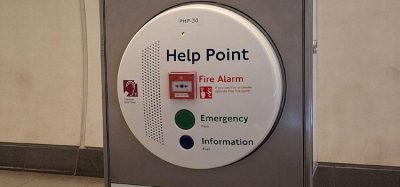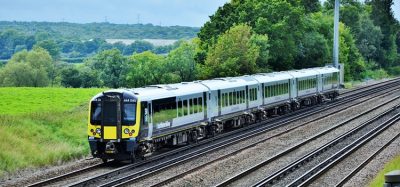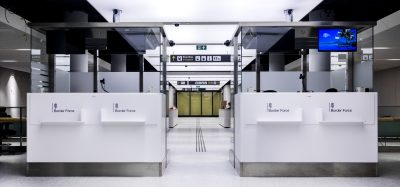People with sight loss avoid rail travel due to accessibility issues
Posted: 29 August 2019 | Global Railway Review | No comments yet
Lack of accessibility causes poor experiences of train travel across the UK; with inadequate station infrastructure, difficulty finding a seat or the toilet, and lack of public understanding all cited as common problems.


A new survey by Guide Dogs has revealed how inaccessible train travel currently is for people in the UK with sight loss. With an ageing population and the number of people with sight loss set to double by 2050, the findings shine a light on the true scale of the challenges people are facing and demonstrate an urgent need for the Government to make improvements to train travel, as promised in last year’s Inclusive Transport Transport Strategy.
The poll among people with sight loss showed problems begin at the station. Well over half of those questioned (60 per cent) say most railway stations have poorly designed infrastructure. Lack of proper knowledge from station staff was another concern (47 per cent). When on the train, common problems included finding an assigned seat (66 per cent) or the toilet (62 per cent). However, people surveyed do believe the public could provide more help if they were better educated (68 per cent).
Within the context of the above, it is unsurprising that 18 per cent of people with sight loss say they have missed or avoided rail travel. Of those who have missed a rail journey, lack of in-station support (54 per cent) and platform alterations (54 per cent) were the leading reasons why. Shockingly, one in ten (10 per cent) also admit they have been left stranded on a platform after missing a train and this rises to over a third (34 per cent) in London.
The stress (45 per cent) of an end-to-end rail journey is the main worry for those who say that they avoid travelling altogether. This spikes considerably among younger respondents aged 16-25 (67 per cent). Close to a quarter (24 per cent) of those who say they avoid taking the train admit they don’t feel comfortable travelling alone.
The consequences of missed and avoided journeys are wide reaching. In practical terms, almost one in five (19 per cent) say important meetings have been missed and over on in ten (13 per cent) have been late to see friends and family. People have also been impacted professionally, with a similar amount (nine per cent) unable to attend an interview because of these challenges. The emotional toll of being unable to complete a rail journey means people polled said they felt scared (36 per cent), helpless (26 per cent) and angry (23 per cent). Sadly, 17 per cent went as far as to say they felt like a burden and excluded from society; with those facing age-related conditions such as macular degeneration most likely to feel that way (27 per cent).
As such, the positive impact of improvements and innovation in this area is clear. Close to one in five (19 per cent) people agree they would travel by train more if services were made more accessible.
Clive Wood, Guide Dog Owner and Engagement Officer at Guide Dogs, commented: “Behind every missed or avoided journey is real person like me with real experiences of feeling totally left out of life. Whilst rail is undoubtedly one of the most complex methods of travel for someone with sight loss, there are several improvements which would make a huge difference if they could be made. For example, improved training and education for customer service staff at train stations and greater awareness and understanding.
“Equally, we are calling on the Government to uphold commitments made as part of the Inclusive Transport Strategy, which sets out how they plan to create a transport system with equal access for disabled people by 2030. Whilst we are pleased some progress has been made over the last year, not enough has been done. Everyone with sight loss deserves to be able to travel with the same level of confidence and freedom as any other passenger and for inclusive, accessible train travel to be a reality in the future.”







